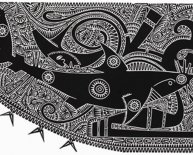
Australian work culture
Last week we reported on research into cross-cultural communication that noted the tendency of Australian managers to swear in meetings. It got us wondering about the other surprising elements of Australian business culture, so we asked some foreigners what takes them aback about working in Australia. Here’s a distilled version of what they said.
First, on the swearing.
Profanity has a natural place in the Australian vocabulary. It’s regularly used in workplaces to express frustration, used to exaggerate for effect, or for humour. For example, “bastard” is frequently a term of endearment in Australia and isn’t really considered swearing. But saying this, gauge the room. You wouldn’t drop the f-bomb in front of gran, or a conservative executive.
Australians often talk about race in a specific way.
Australians are proud of their melting-pot culture, but people are also proud of their own heritages. Playful ethnic epithets can be used by people to describe their background. For example, it is not unusual for a person whose parents are from Greek, Lebanese or Italian backgrounds to refer to themselves or their family as “wog”. This can really shock visitors. One Scot said it “absolutely startled me, legit”, when he first heard the term.
On the flip-side it’s never acceptable to address someone or refer to them by a racially perjorative name – it’s reserved for self-reference.
It’s rude to sit in the back of a taxi if you’re travelling on your own.
This comes down to “mateship”, the term for the culture of equality in Australia. You can have a chat with anyone, even a stranger, and therefore be courteous and sit next to the guy doing you favour. One of our colleagues from the UAE says: “Aussies are some of the friendliest people I’ve ever met. They’re happy to strike up friendly conversations with total strangers”.
Australians might be laid back, but being late is uncool.
Tardiness won’t win you any favours. But being too early can come across as over-eager and annoying. Overall, just don’t waste people’s time. Know when you’re meeting, and be prepared and keep it short, sharp and simple.
Casual conversation is expected at the start of a lunch meeting.
While we like to keep office meetings short and sharp, getting straight to the point at a business lunch could be seen as trying to rush the meeting, or as being too aggressive. If a person is taking the time to leave the office, it’s expecting it to be a relaxed and genuine catch-up where you have the opportunity to talk about common interests or topical subjects.
Australians socialise after work a lot.
While a Friday night drink after work might be the norm in many countries, in Australia the day of the week doesn’t define when you socialise. A few beers after work at the local pub offering “tight-arse Tuesday” pizza or parmigiana is totally fine.

















